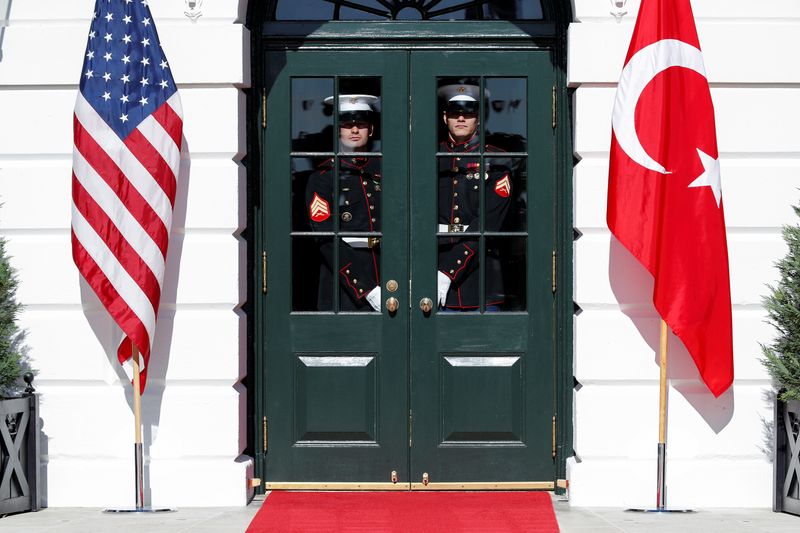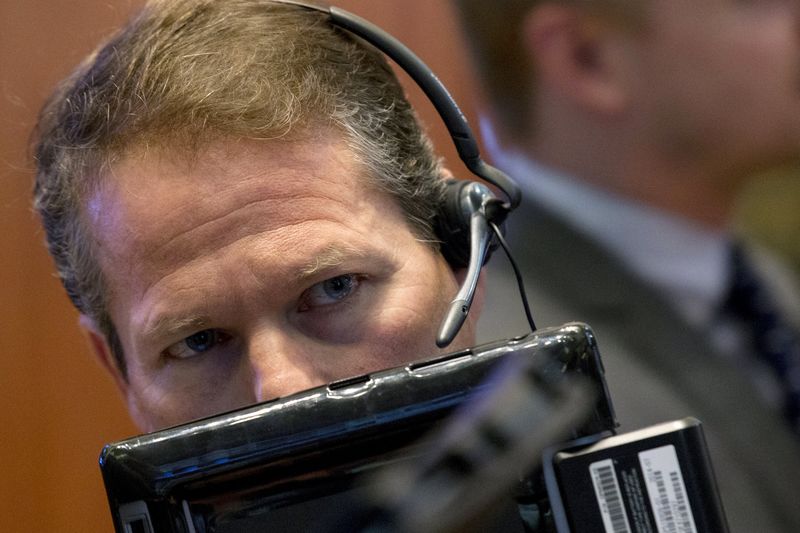By Daren Butler and Dominic Evans
ISTANBUL (Reuters) - Turkey's defence industries chief said U.S. sanctions against him and his agency for buying Russian missile systems would not have a big impact on ties and may boost domestic development, though the defence minister said the move had "shaken" their alliance.
The sanctions, announced at a delicate moment in the fraught relations between the two NATO partners as President-elect Joe Biden prepares to take office, could affect contracts worth $1.5 billion to $2.3 billion, around 5% of U.S.-Turkish trade.
Ankara has condemned the measures as a grave mistake, but the lira firmed after their announcement, having been pressured for more than a year by the prospect of U.S. punishment for Turkey's purchase of the Russian S-400 air defences.
The sanctions avoided targeting Turkey's economy generally, focusing on its arms procurement and development body Defence Industries Directorate (SSB), its chairman Ismail Demir, his deputy and two officials responsible for air defence systems.
They do not cancel existing contracts or prevent either side procuring vital defence needs - including parts for the U.S. F-35 stealth fighter still being produced in Turkey, or spare parts for Turkey's F-16 jets.
"We expect this will not influence our relations much," SSB head Demir said on Tuesday. "We are NATO allies. As they themselves said, there is cooperation with Turkey in many areas. We and they expect this to continue," he said in comments broadcast by state-owned Anadolu news agency.
The so-called U.S. CAATSA sanctions, designed to deter any country from agreeing military deals with Russia, also restrict U.S. loans and credits to SSB, although that is not seen having a significant impact.
"We will find remedies for this in our own circles," Demir said. "The issue of developing domestic industry will continue, maybe more quickly."
SANCTIONS "UNJUST"
While Demir played down the sanctions, Turkish Defence Minister Hulusi Akar said they had damaged relations and called for renewed cooperation between the two allies.
"This sanctions decision has shaken all values in our countries' alliance," Akar said.
President Tayyip Erdogan had earlier said it was upsetting that Washington had taken the step.
The foreign ministry said Turkey would retaliate against what it called an unjust decision, and Foreign Minister Mevlut Cavusoglu discussed the move in a phone call with his U.S. counterpart Mike Pompeo on Tuesday.
The SSB, while increasingly independent, relies on international cooperation for critical research, development and design in some of its hundreds of weapons projects, said Can Kasapoglu, director of defence research at the Istanbul-based think-tank EDAM.
"It is right at the epicentre of this defence transactions complex (and) sanctions targeting its export licences can do real damage," he said, adding third parties may now hesitate to deal with a "sanctioned entity".
Ankara acquired the Russian S-400 ground-to-air defences in July last year and says they pose no threat to NATO allies.
Turkey is the first NATO partner to be targeted by CAATSA legislation, and it comes as Washington seeks to discourage other countries including its Middle East ally Egypt from buying Russian military equipment.

Russian media have reported that Cairo signed a $2 billion deal with Moscow to buy more than 20 Sukhoi SU-35 fighter jets.
